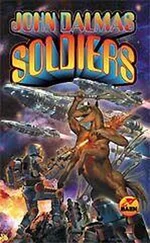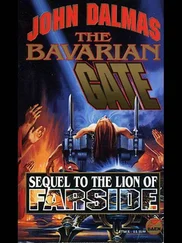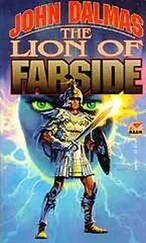John Dalmas - The Yngling
Здесь есть возможность читать онлайн «John Dalmas - The Yngling» весь текст электронной книги совершенно бесплатно (целиком полную версию без сокращений). В некоторых случаях можно слушать аудио, скачать через торрент в формате fb2 и присутствует краткое содержание. Жанр: Фэнтези, на английском языке. Описание произведения, (предисловие) а так же отзывы посетителей доступны на портале библиотеки ЛибКат.
- Название:The Yngling
- Автор:
- Жанр:
- Год:неизвестен
- ISBN:нет данных
- Рейтинг книги:5 / 5. Голосов: 1
-
Избранное:Добавить в избранное
- Отзывы:
-
Ваша оценка:
- 100
- 1
- 2
- 3
- 4
- 5
The Yngling: краткое содержание, описание и аннотация
Предлагаем к чтению аннотацию, описание, краткое содержание или предисловие (зависит от того, что написал сам автор книги «The Yngling»). Если вы не нашли необходимую информацию о книге — напишите в комментариях, мы постараемся отыскать её.
The Yngling — читать онлайн бесплатно полную книгу (весь текст) целиком
Ниже представлен текст книги, разбитый по страницам. Система сохранения места последней прочитанной страницы, позволяет с удобством читать онлайн бесплатно книгу «The Yngling», без необходимости каждый раз заново искать на чём Вы остановились. Поставьте закладку, и сможете в любой момент перейти на страницу, на которой закончили чтение.
Интервал:
Закладка:
"And what do you want me to do?" The baron's voice reflected the anger of frustration that Nils read in his mind. "You say I don't have the strength to stop them, but I don't have the space to keep most of the peasants inside."
"Bring in as many as you have room for. Put sentries out with horns. Have the peasant men climb on their roofs when they hear the horns and use their bows. And give them whatever swords you can. They won't be much use to them as weapons, but they may help to stiffen their spines."
"It's against the king's law to give swords to peasants. And I can't call them men-at-arms; I already have as many as the law allows."
Nils didn't answer.
The baron sat down again, thoughtful. "Surely you don't think the peasants can hold the village." It was a statement, not a question.
"No. But there'd be fewer horse barbarians when it was over, and the peasant men, those not within the castle, will be killed anyway. It's not just a matter of this village, though. There are thousands of horse barbarians plundering through Europe, and your troubles with them won't end until they're dead or driven out. When they were in a few large armies, you marched against them, and they stood and fought and you beat them. But now that they're a lot of scattered packs, you don't know what to do about them. After Elbestat you might have kept after them and hunted them down, but you demobilized and came back to your castles to lick your wounds. Now you don't know where or when they'll strike next, or how to defend your villages. The peasants… "
"But would the peasants fight? They're only peasants, after all."
Nils shrugged. "Talk to the Brethren. They know the peasants better than anyone else does. There's one staying in the village now, a Brother Hannes."
Martin Gutknekt stared thoughtfully past the northmen, the discourse within his mind a slow, complex pattern of German. After a bit the brown eyes focused on Nils. "Well, Northman, I'm not used to someone else doing my thinking for me, and I'm not overly fond of it, but I thank you just the same. Will you and your friends stay here tonight? I can feed you better than they would at the inn, and the straw in the beds will be cleaner."
"Our thanks, Baron, but we'll sleep in the open. Cream draws flies. Who knows? The attack could come at sunup, and we don't want to be trapped in the inn and be butchered or in the castle and be delayed." He held out a huge hand. "We wish you luck, and the blood of your enemies."
2.
When the sun reached the meridian, the four warriors came to a crossroads. To the south they could see a larger castle in the distance. Instead of continuing in that direction, they followed the lesser road westward toward the wild forest that began with the hills. The October sun was warm, almost hot, and although they were used to wearing mail and to sweating, it felt pleasant to ride into the shade at last. At a suggestion from Leif Trollsverd they swung out of their saddles and strode along, leading their horses up the slowly climbing road, stretching their own legs, giving the animals a rest. Here the road was little more than a trail, wide enough for a wagon but humpy with stones and outcrops of bedrock.
In their own lands they were more used to going on foot or skis than on horseback, and they hiked for four hours in unbroken forest, the road curving more north than west. Soon after they'd mounted again, Nils led them off the road at a blazed tree and along a little path that led to a cabin. He held up a hand and stopped them as soon as he could see the cabin through the trees. His careful eyes saw nothing wrong. His subconscious, remembering perfectly, comparing in detail, saw nothing different that could not be accounted for by the passage of time, by the change of seasons from one winter to the following autumn. But he knew unquestionably that something was seriously the matter.
They sat without moving, all but Nils aware of the occasional movements of their horses, their eyes carefully examining the cabin and the woods around it. Their ears were alert for meaningful sound.
Nils's questing awareness assured him that no one was there now, and that it was safe. When he led them forward again, it was still with a sense of something wrong. The shutters were open, and the interior was lit by autumn sunshine filtered through thin-scraped deer hides stretched over the windows. The place had been used by horse barbarians, apparently in a rain, for one had voided in a corner. Blood had dried on the split logs of the floor. The expressions of the three mirrored their separate characters as they looked from the blood to Nils.
The blond Jot, Erik Barsarken, showed covert pleasure, his eyes gleaming in anticipation of vendetta. In Leif Trollsverd's darker face the jaw muscles were knotted; there was a blood debt here. Sten Vannaren, keen-minded and long on experience, merely watched his big young friend to see what his reaction might be; he had decided some time before that Nils Jarnhann was a new kind of man, whose acts he could not yet predict but would in time.
Nils walked slowly through the cabin's two rooms, his eyes missing nothing. Then all four went outside and examined the ground.
"They were here yesterday, and once a few days earlier," he said at last. "Maybe some will come tonight. We'll bed within hearing, in a thicket."
As they led their horses downwind of the cabin, they smelled rotting flesh. By a clump of hazel they found the body of a baby, skull smashed, its flesh gnawed by polecats. In a draw behind the cabin they found Ilse's spring, and the tracks where horse barbarians had ridden up the brook. They staked their horses some distance away and returned, holing up in a grove of old firs ringed with sapling growth that screened them from the nearby cabin. From their saddle bags they took dried meat, cheese and hard bread, and ate without talking. When they were done, they stretched out on top of their sleeping robes and relaxed like wild animals.
Soon the sun had dropped behind the crest of the ridge in back of them. All heard the voices at the same time, loud and in a language that was not German. They lay quietly, listening to the careless sounds. This time the horse barbarians came down the draw above the spring. Soon the voices were lost within the cabin's walls.
Nils spoke for a moment in an undertone, answered by nods and narrow-eyed grins. They buckled on their harnesses, took swords, shields and bows, and slipped through the trees to where they could see the cabin clearly. It still was full daylight, even in the shadow of the ridge. The horse barbarians had tethered their horses on leather ropes, to browse the twig ends of the brush, and after a brief intent examination of the surroundings the northmen decided that all were inside. The smoke of a young fire was starting from the chimney.
Each side of the cabin had openings. There was a door in front and one in back, and each side wall had two windows, one into each room. Leif Trollsverd, an arrow nocked, took a position from which he could cover the back door and the windows in one of the side walls. Sten knelt behind a tree diagonally opposite, covering the front and the other side. Erik slipped smoothly across the narrow strip of open ground to the side of the house and around the corner, stationing himself beside the back door, his teeth exposed in an ugly grin.
A moment later Nils appeared from the other side. He had a dry fir branch in his right hand, one end wrapped with blazing birch bark. As he ran up to the wall, he threw the branch onto the shake roof, then darted around the corner, shifting his sword from his left hand to his right. He could sense the sudden intentness inside; they had heard the thump of the torch.
Just as Nils reached the side of the door, a swarthy youth stepped out, started, jumped back, but the sword stroke caught him as he moved and he fell backward into the cabin with his rib cage cloven. The short shouts from inside meant nothing to Nils, but the thoughts that reached him were of anger and alarm. He stood shoulder to the wall, waiting for another, but none came. There were sounds of men scrambling, of swords being drawn from scabbards, and Nils sensed one of them standing by the wall, just inside the door, waiting for someone to try an entrance.
Читать дальшеИнтервал:
Закладка:
Похожие книги на «The Yngling»
Представляем Вашему вниманию похожие книги на «The Yngling» списком для выбора. Мы отобрали схожую по названию и смыслу литературу в надежде предоставить читателям больше вариантов отыскать новые, интересные, ещё непрочитанные произведения.
Обсуждение, отзывы о книге «The Yngling» и просто собственные мнения читателей. Оставьте ваши комментарии, напишите, что Вы думаете о произведении, его смысле или главных героях. Укажите что конкретно понравилось, а что нет, и почему Вы так считаете.








